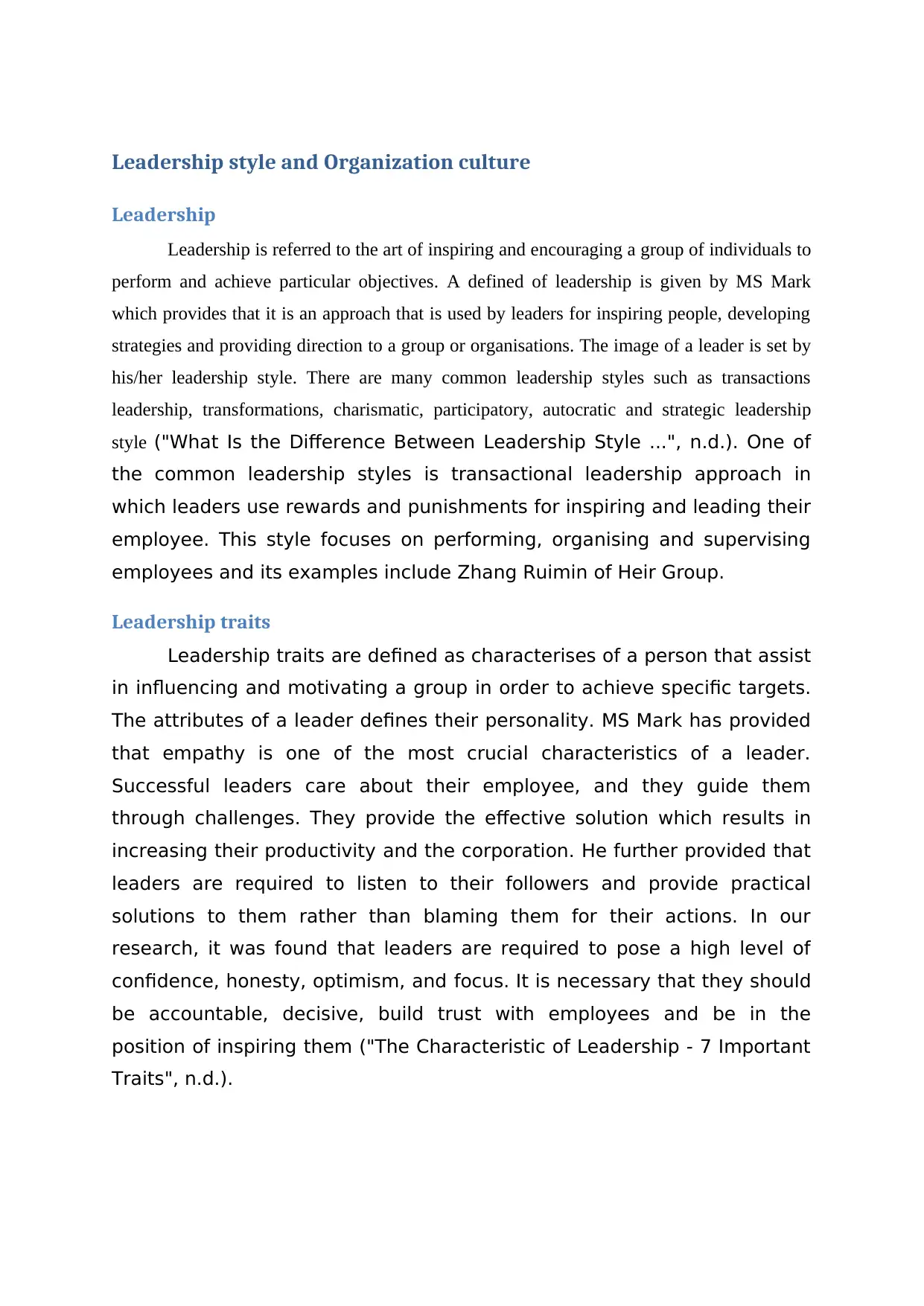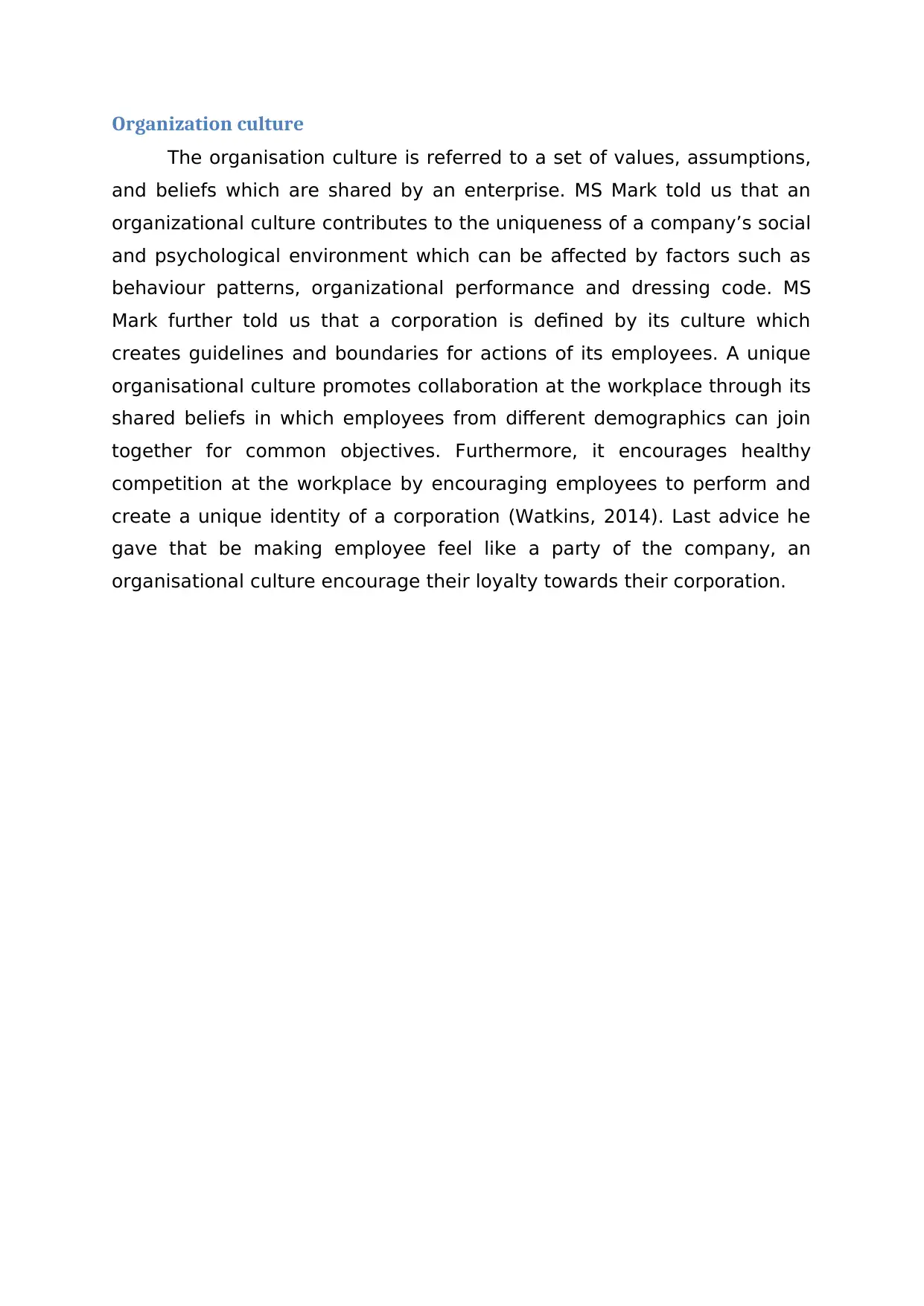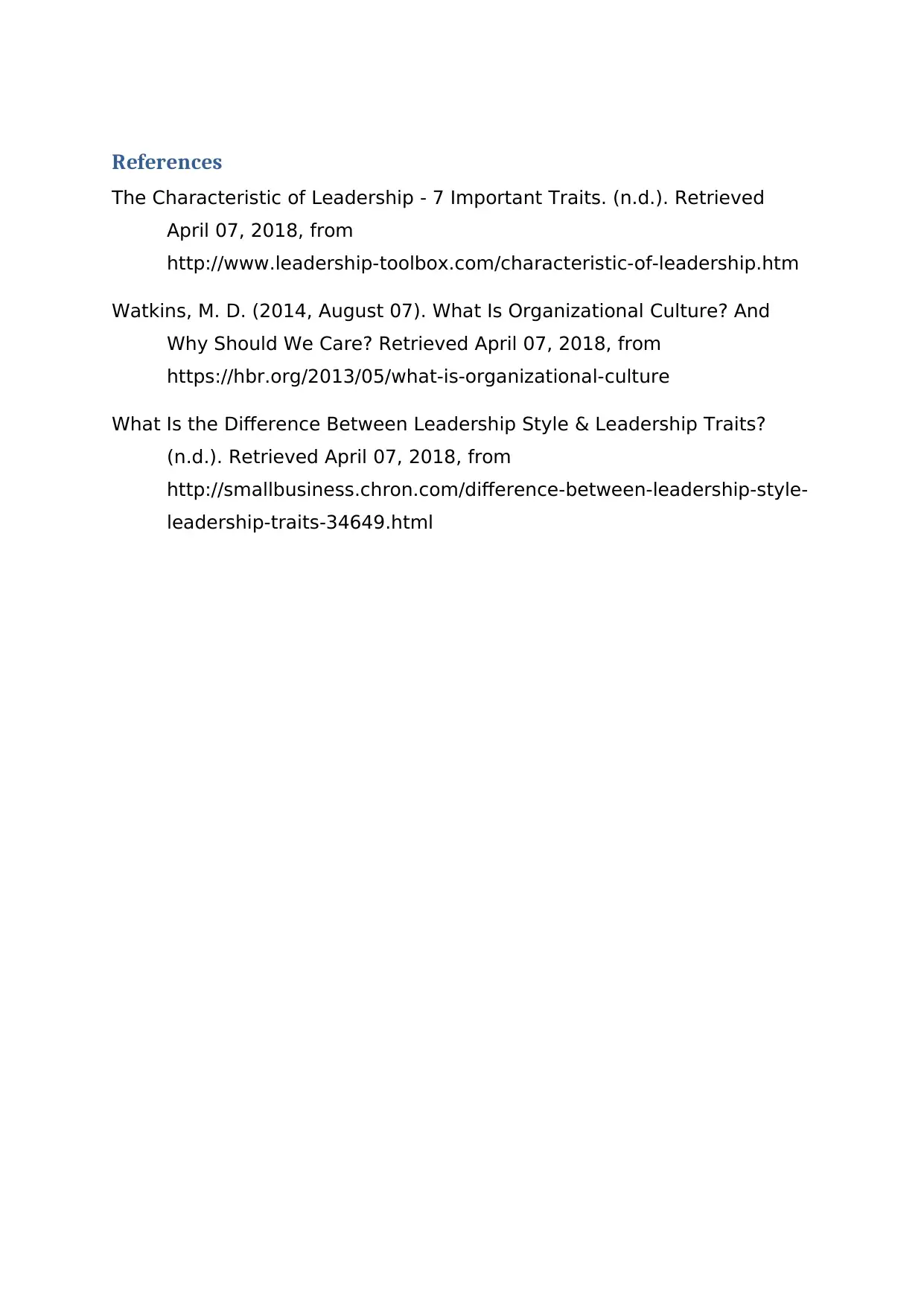Analysis of Leadership Styles, Traits, and Organizational Culture
VerifiedAdded on 2021/06/17
|3
|574
|38
Report
AI Summary
This report provides an overview of leadership styles, leadership traits, and organizational culture. It begins by defining leadership and exploring various styles, including transactional leadership. The report then delves into the characteristics of effective leaders, such as empathy, confidence, and the ability to inspire employees. Furthermore, it examines organizational culture, defining it as a set of shared values and beliefs that shape a company's environment and employee behavior. The report emphasizes the importance of organizational culture in fostering collaboration, promoting healthy competition, and building employee loyalty. The content is supported by references to relevant sources, providing a well-rounded analysis of the subject matter.
1 out of 3









![[object Object]](/_next/static/media/star-bottom.7253800d.svg)